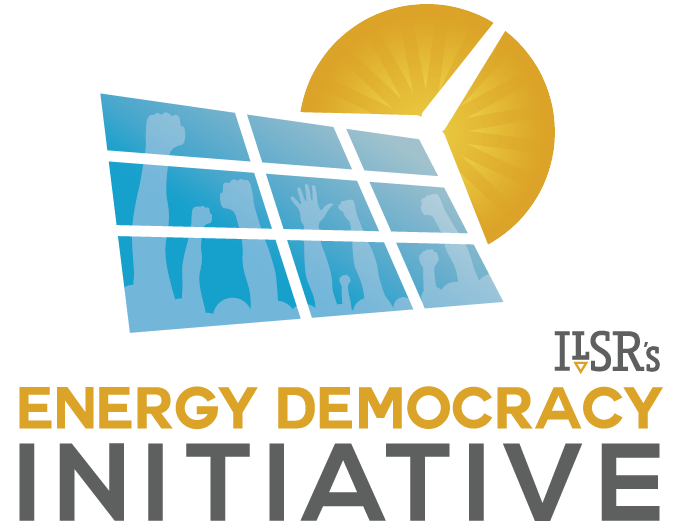In the News: John Farrell
September 12, 2017
Media Outlet: Midwest Energy News
John Farrell’s expertise as a member of Minneapolis, Minn.’s Clean Energy Partnership and his continuing role promoting clean energy development was used in a Midwest Energy News piece by Frank Jossi. This piece describes Minneapolis Mayor Betsy Hodges proposal to nominally increase a franchise fee for electricity (for residents) and natural gas (for utility Xcel Energy) in order to increase clean energy technology in the city.
Here’s John’s contribution:
A small fee increase in a proposed Minneapolis city budget would raise millions to promote energy efficiency — and pay for itself many times over, according to advocates.
Released this week, the budget calls for a 0.5 percent franchise fee increase for all customers — residential, commercial and industrial — that would raise roughly $3 million annually, according to John Farrell, director of the Energy Democracy Initiative at the Minneapolis-based Institute for Local Self-Reliance.
Farrell, who is among those who proposed the idea, serves on the board of the Clean Energy Partnership, a unique collaboration between city officials and the two utilities which serve Minneapolis: Xcel Energy and CenterPoint Energy.
The extra money will “allow the city to focus on the goals in the Clean City Partnership,” he said, including outreach to hard-to-reach minority and disadvantaged communities. “It will be work out to 50 cents a month for most homeowners, and more for larger users of electricity.”
…
Farrell believes the money could go toward collaborations with organizations which work in minority neighborhoods. By tapping the right “messengers” to speak to different communities – renters, landlords – about energy efficiency the city will move closer to reaching its ambitious carbon reduction goals, he believes.
As an example, Farrell said Latino renters and small business owners have been hard to reach. By teaming with existing nonprofits, the city might find a more effective way to tap into that audience and break down potential barriers of suspicion and fear, especially in immigrant communities.
All told, utilities spend around $21 million annually on energy efficiency programs, he added. While the additional funding is not earmarked, Farrell and other committee members see it as helping reach single family and multi-family housing, as well as for programs focused on business.
The proposal depends largely on existing outreach programs Xcel, CenterPoint and the city offer residents and businesses. Farrell serves on the Energy Vision Advisory Committee (EVAC) of the Clean Energy Partnership, which endorsed the proposal.
For now the city has pilot programs underway that could be expanded by the franchise fee increase. For businesses those include the Green Business Cost Share Program and a small business energy coaching pilot focused on Lake Street, a major thoroughfare in Minneapolis.
The other pilot projects featured residential outreach to apartments and homes through the citywide Minneapolis Renters Coalition and the Neighborhood Hub.
In a presentation Farrell made over the summer to EVAC, the impact of the franchise fee increase was discussed. Using research from three groups, EVAC member Timothy DenHerder-Thomas, a solar developer, found efficiency programs could cut citywide energy use anywhere from 35 to 78 percent.
A goal of decreasing energy by 50 percent would reduce energy use 1.5 percent a year, and greenhouse gas emissions 1 percent annually. That would put the city much closer to its goal of reducing greenhouse gases by 30 percent by 2025 and 80 percent by 2050.
The savings from that goal could reach $42.5 million by 2022 and grow to $280 million by 2050.
“It’s a nominal fee,” he said. “It’s not zero but every dollar being raised will help reduce energy bills. It will reduce bills more than it will cost for the fee.”





